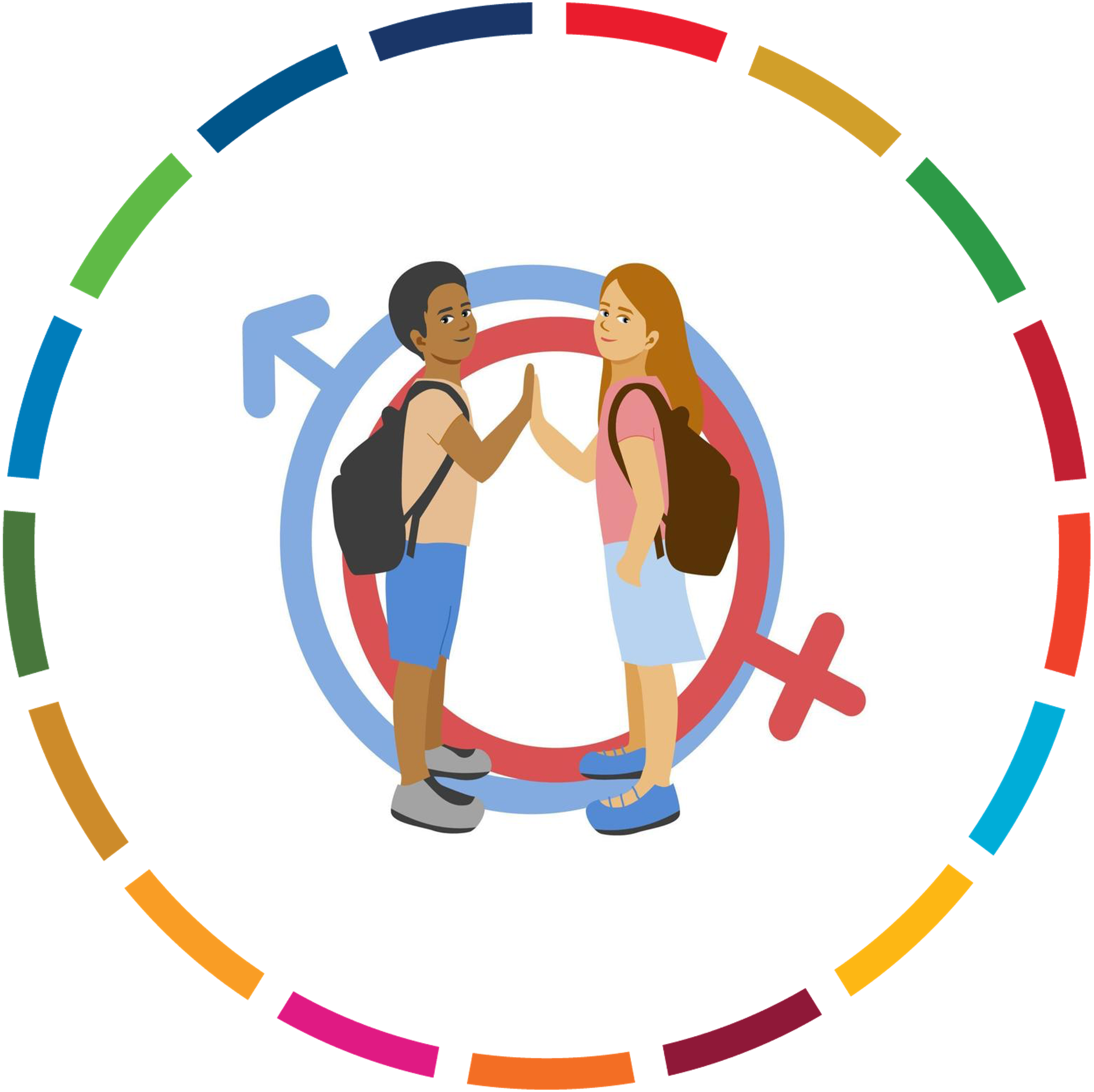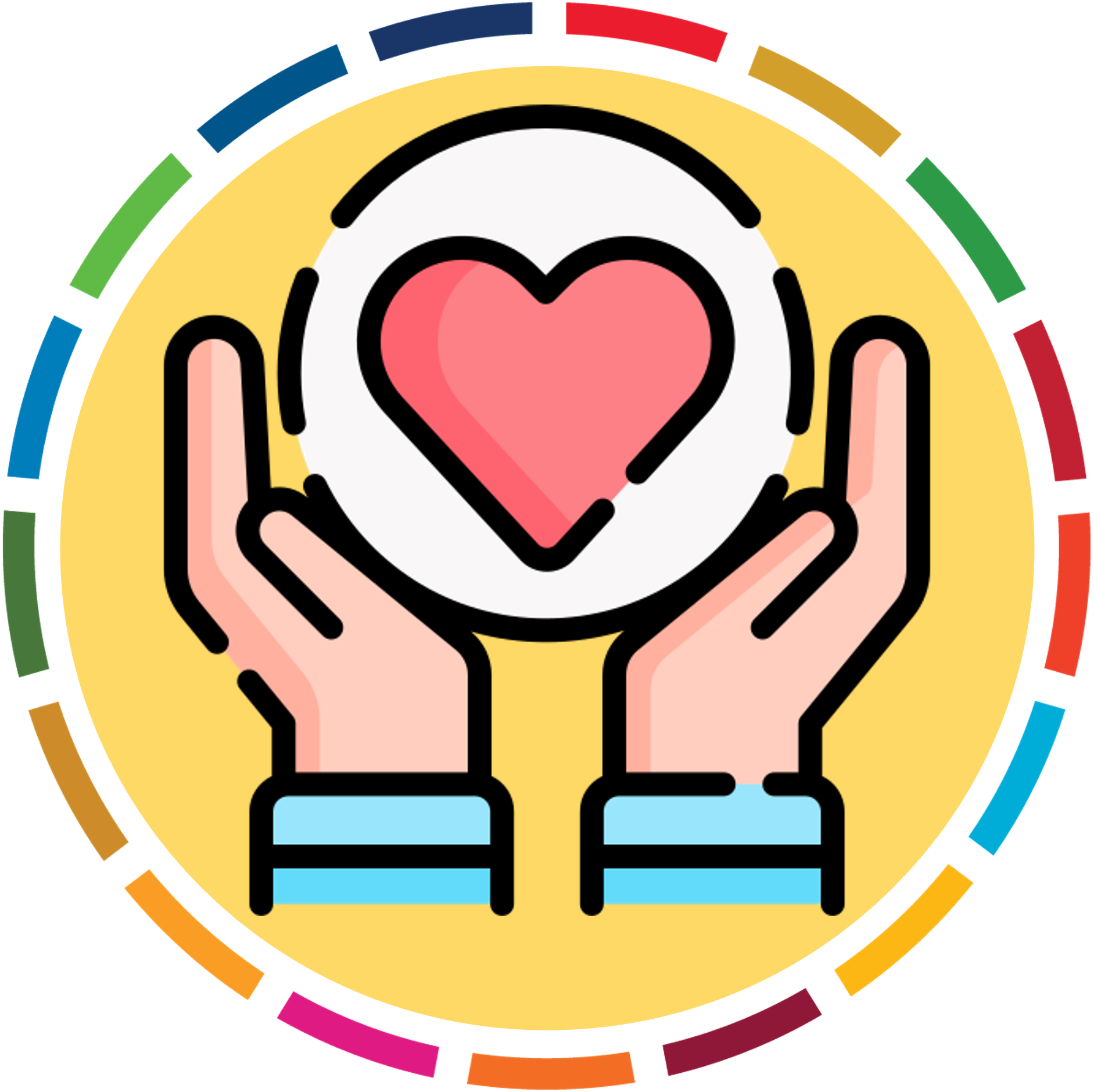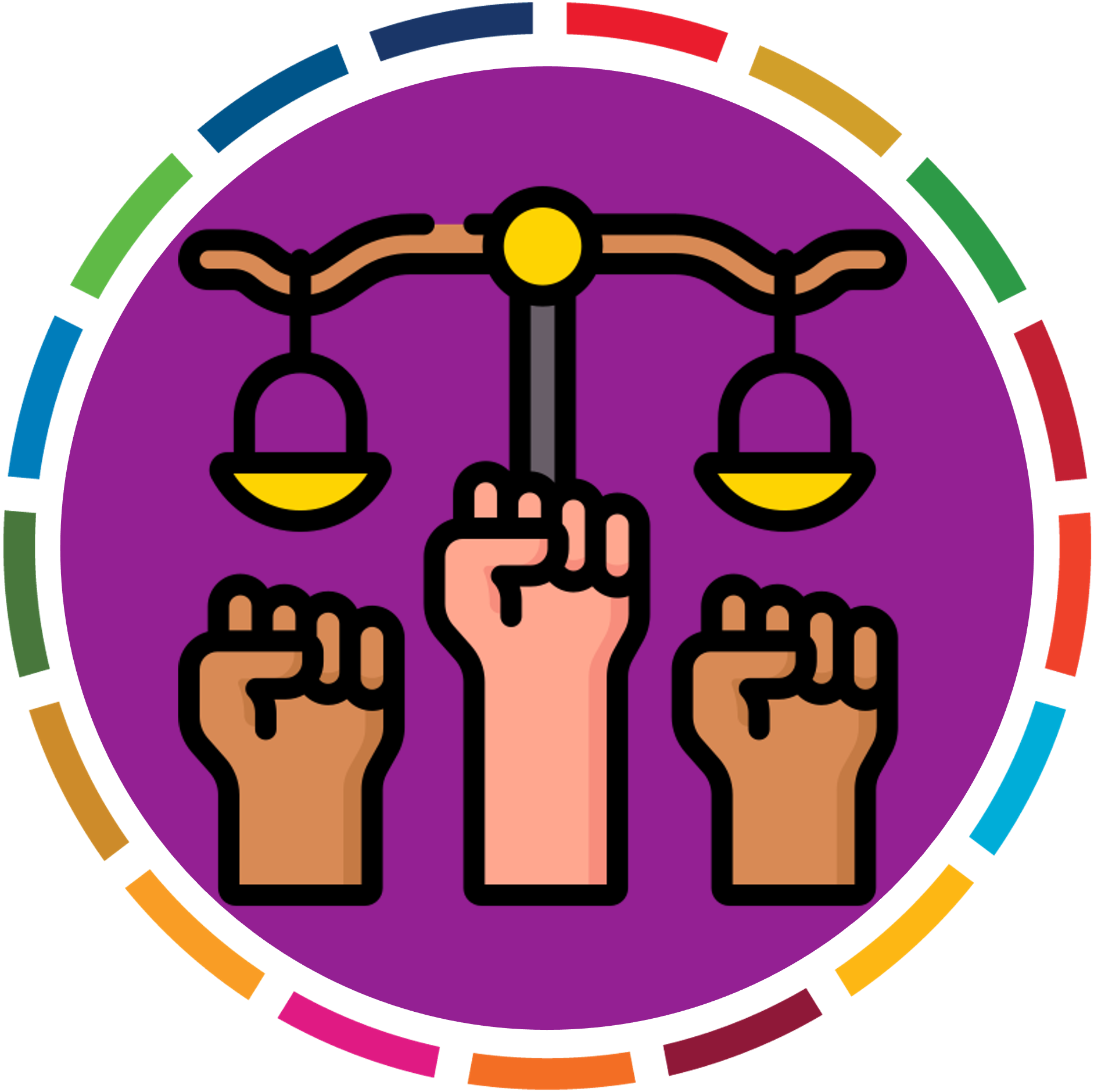

, where young people are equal citizens and are encouraged and supported to achieve their fullest potential as global citizens.
A Just Society

Just societies realize human rights, leaving no one behind. That’s the central promise of the Sustainable Development Goals. Everyone should have enough food, and quality health care and education. All kinds of discrimination must end. Daily life is where a just society begins. In all you do, be fair. Be kind. Be generous.
We challenge stereotypes in the media. We refuse to use gender biased language. Everyday life is full of options to advance equality. At current rates of progress, it will take not just years but centuries to achieve Human Rights. Keep in mind: No country has achieved optimum Human Rights implementation. As we are informed about our country’s track record and join advocates calling for faster change, you too can.
We Teach Children About Equality
Children pick up ideas about the world literally from the day they are born. We ensure to be role models for equality and fairness in how we speak and behave– children mimic what you do. We have listened to children and encouraged them to think about how others might look or live differently. We monitor social and other media and even books and toys to avoid those perpetrating gender, racial or other stereotypes. We are mindful that stereotypes can be limiting for boys as well as girls.

We Model Self-Care

It’s simple. Take care of yourself. Stop work early. Go for a walk. Sleep until you wake. Plant a garden or do anything that gives you joy. You’ll be happier and healthier. Our hurried, frenzied world needs to slow down – and each of us can be a starting point. We make self-care a regular practice, and even if we are feeling under stress, we are able to better cope. Different pillars of self-care include mental, emotional, physical, environmental, spiritual, recreational and social. Pick the ones that work best for you.
We Champion Accessibility & Inclusion
Promoting an inclusive environment is an essential part of ensuring the rights of every person. Globally, 1.3 billion people, about 16 per cent of the population, have some form of disability—not all of which are obvious or easy to see. Yet, persons with disabilities are often subject to discrimination and exclusion. You can make a difference. We advocate for inclusive, accessible spaces – whether physical or online. And, when you witness any form of discrimination anywhere, speak up.

Know Your Rights

Most countries have committed to human rights standards and translated them into national laws, such as by guaranteeing rights to health and education, and establishing protections against gender-based violence. Learn what human rights instruments your country has ratified, and get involved with calls to implement and monitor them. One starting point might be your own locality; some municipalities have applied international standards to local laws.

